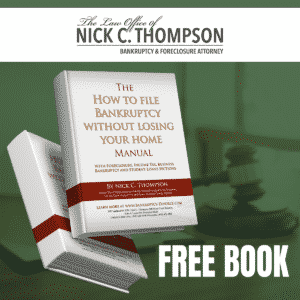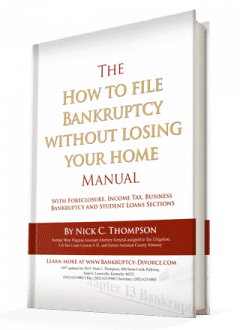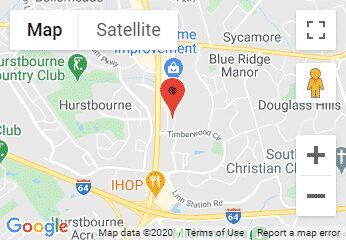The normal reason for a creditor to contest a bankruptcy is because the debtor is attempting to discharge one of the non-dischargeable debts from Section 11 United States Code 523 of the Bankruptcy Code. Seven major debts cover the majority of these problems. But, exceptions allow almost every non-dischargeable debt to be discharged or managed—under the right circumstances. In fact, most times you only need to properly plan and file the bankruptcy to discharge it.
The Non-Dischargeable Debts in Bankruptcy • How to Discharge Some of Them
⎆ Child support and alimony are non-dischargeable but payable debts.
Child Support and alimony can be repaid in a Chapter 13 bankruptcy but generally cannot be “discharged”. Filing a bankruptcy does not even delay child support or alimony collection in state court. In fact, it is by statute that child support and alimony pass through a bankruptcy case, generally without effect. But judges don’t care how you pay the child support. They normally just want you to pay it. A Chapter 13 can pay the child support or alimony at the expense of other creditors such as unsecured and secured creditors. They become priority debts which are paid first before secured debts. In some cases, you may pay zero to the unsecured debt to insure support is paid.
⎆ Only income taxes under 3 years old are non-dischargeable debts!
To be dischargeable, the income tax debt must be over 3 years old. You must provide the court with returns for the last 2 years. In addition, there must be no assessments within 240 days. Other tolling events that can extend the waiting periods include the following:
- Prior bankruptcy cases.
- Offers in compromise.
- Any fraud or improper efforts to delay collection.
Bankrupting income tax debt is largely a timing issue. For instance, you can easily discharge the unsecured, nonpriority part of the tax debt. Also, you may value the liens on homes or property to reduce the secured amount of the tax which is owed and pay taxes over time. In Chapter 13, old income taxes, penalties, and interest on the tax debt is an unsecured claim which is often paid far less than the debt. We have had plans approved which repaid less than 10%. See the tax portion of our website for a full explanation.
⎆ Federally Guaranteed Student Loans are manageable – only the majority are non-dischargeable debts.
Student loans can be managed by a bankruptcy even if they are non-dischargeable. Interestingly, you can stop the collections for years and pay little or nothing to them in Chapter 13. By putting them into rehabilitation and/or consolidation, it often forces the Government loans into affordable income based options. Income-base repayment plans are possible for Department of Education loans but not for private loans. If the loan is an undue hardship, you may be able to discharge it by filing an adversary proceeding.
An option for government loans is to consolidate or rehabilitate student loans into income-based repayments. Here is the studentloanify program which helps you do it without being a victim of your own servicer. However, if you run into problems, call us at 502-625-0905. For private loans few or no income based options exist which makes it easier to discharge private loans in adversary proceedings.
Student loans are an undue hardship when you cannot afford food, shelter, clothing and medical care. Undue hardship is almost presumed if you meet the poverty guidelines and cannot increase income and provide for the basics of life. Filing an adversary proceeding is hard work but, deserving debtors earn the discharge close to 50% of the time when they attempt to discharge the student loan debts.
• The Brunner test.
The rules for student loans changed in October 1998 when federal loans were made non-dischargeable and again in 2005 when private loans were made non dischargeable. The Brunner test considers 3 factors:
Whether you made good faith efforts to repay (not required if you never had the money).
Your ability to repay now and in the immediate future.
Whether it creates a hardship to your family if you repay. You normally need to file for income-based repayment loan programs prior to filing for the undue hardship proceeding. Part of qualifying for the undue hardship discharge is proving you have exhausted all of the administrative remedies. Being denied a reasonable income based payment further proves your loan is an undue hardship.
• Studies.
Partial discharges are more common than complete discharges. In fact, there are now more than three studies that show persons who qualify under Brunner and attempt the adversary proceeding get a discharge almost 50% of the time. The problem is, most attorneys don’t know how to file an adversary and prove these cases. But, even if they understand how to file the case an adversary is $5,000 to $10,000 of additional work which does not guarantee success. Some servicers have argued if you are paying an attorney you could afford the loan. Attorneys are reluctant to work for free, other attorneys consider this work too hard for their offices. As a result, many people obtain these discharges on their own.
• An example of a hardship discharge.
In one case an attorney owed child support to two women. Taxes took 40% of his income. Next, the two mothers took another 50%. So, there was literally nothing left if child support is paid. As a result, the attorney filed bankruptcy and an adversary to discharge the student loans with the argument: he either supports the children or pays the student loans. It is worth noting that both the bankruptcy judge and the US attorney were females who were filing divorce cases and seeking child support. This resulted in the Judge discharging 120,000 of the 150,000 in debt. Then, the remaining 30,000 was placed into an IBR (Income-Based Repayment.)
• An example of managing student loan debt in Chapter 13.
Bill owes 50,000 to a private student loan which is attempting to get a judgment and 30,000 to the Department of Education. Bill files a Chapter 13 and an adversary to discharge the federal student loan only. The Chapter 13 plan repays 0% to the long term Private student loan (over 60 months Debt). If the plan is paid for five years normally the private student loan case in state court will be dismissed within a year or two.
It is often charged off and servicers will rarely refile a second case to collect. If it remains unpaid for 7 years the statute of limitations in Kentucky makes it uncollectible. The result for the private student loan is often collections are never attempted again. The government loan is forced to grant an affordable IBR at a low or zero repayment or be possibly discharged. See our page and section on how to manage student loans.
⎆ Debts due to theft or fraud might not be non-dischargeable debt.
Even if a debt has an element of fraud the debt might be dischargeable in Chapter 13. Interestingly, only relied on, proven, material, and intentional financial misrepresentations are fraud in Bankruptcy. If banks make bad loans or fail to check facts, it does not make debts non-dischargeable. Lenders have a hard burden to prove fraud and they can be sued if they allege it and fail to prove it.
⎆ Making credit card charges just before filing.
A charge or cash advance over $950 or purchases over $675 for luxury items within 90 days before filing are assumed fraudulent, so timing and amounts are important. This presumption does not have a bright-line where it is or isn’t fraud. In fact, there are 21 factors the judge looks at to determine if you abused a credit card just before filing. Even if you lose such a case you only have to repay the amount of the luxury goods or cash advance you charged just before filing. You still discharge the remaining amount on the card.
⎆ Criminal acts and intentional injuries.
Criminal acts and intentional injuries are non-dischargeable in bankruptcy. However, if an injured person fails to file an adversary proceeding and object to the discharge, it is often discharged in bankruptcy anyway. Bankruptcy won’t stop criminal courts from ordering criminal restitution. Bankruptcy is only a defense in Civil Court.
⎆ Drunk driving accidents.
You can get your license back from a civil judgment if you get a discharge in bankruptcy. Drunk driving accident victims must file adversary actions in bankruptcy court and prove drunk driving or chance being forever barred from collecting.
⎆ Marital property settlement agreements.
Filing Chapter 13 normally eliminates your obligation to pay the marital property settlement if you properly structure the plan. Simply listing a marital property settlement in Chapter 7 won’t eliminate it.
If you have non-dischargeable debts, list them anyway. There are ways to bankrupt many of them and accounting for the expense of the debt often lowers your plan payment or may qualify you for a Chapter 7. The following debts are discharged unless a creditor timely files and prevails in an action to have such debts declared non-dischargeable:
- Money or property obtained by false pretenses
- Fraud or defalcation while acting in a fiduciary capacity
- Restitution or damages awarded in a civil case for willful or malicious actions by the debtor that cause personal injury or death to a person
11 U.S.C. §§ 1328, 523(c); Fed. R. Bankr. P. 4007(c).
 Resources for Bankruptcy
Resources for Bankruptcy
Louisville Kentucky Bankruptcy Forms
Student Loans in Chapter 13 Bankruptcy • Video
How to Discharge Student Loans in Bankruptcy
Finishing a Chapter 13 Plan and Getting a Complete Discharge
Fraud, Stay, and Discharge Adversary Complaints
If you are thinking about filing bankruptcy, don’t delay because timing is crucial. I am here to help you. So, contact my office right away to start the conversation. Nick C. Thompson, Bankruptcy Lawyer: 502-625-0905.






